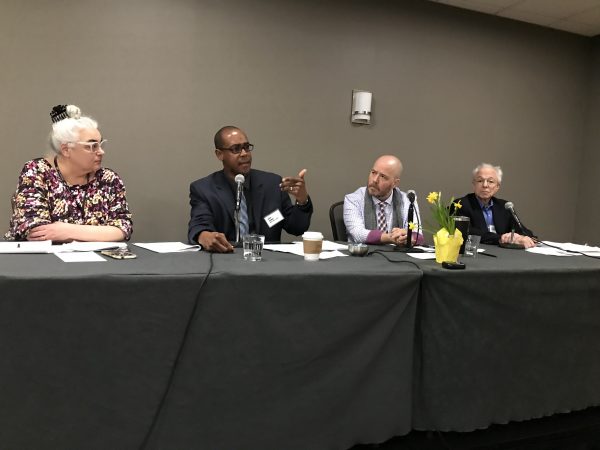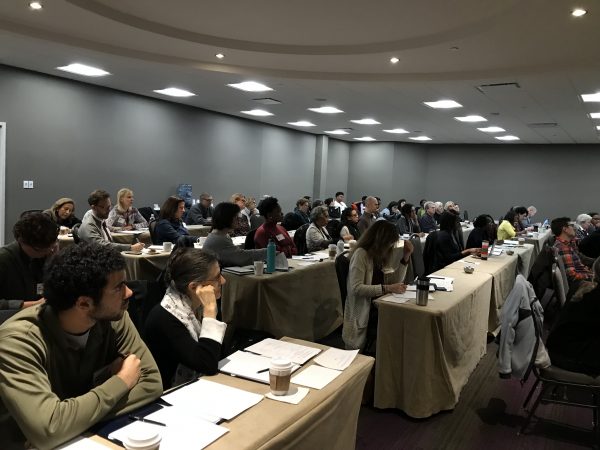
Imagine a young African American man raised proudly by his mother, and now the first generation to go to college. Why might he fall victim to depression and academic failure? What effect does the context of poverty, violence and drug abuse have on such a young man? Dissociating himself from the pain, he breaks from his past. As soon as he sees the possibility of success, he feels the shame of separating from his roots and hurting the loved ones from whom he is growing apart. It is hard for a man in that situation to stay true to himself and aggressively develop his potential, and hard for his mother to believe he will be safe in a world that targets and disables aggressive young Black men. The trauma of slavery generations back reaches far into future generations. How do we stop its transmission?
Featured speaker Dr. Janice Gump addressed the destruction of the attachment bond transmitted across generations and the enslavement that squashed healthy ambition and creativity in young African American men as a result of which mothers are therefore highly protective of their sons. Dr. Gump’s writings and presentation, the clinical presentation by Andrew Price, and discussion in the audience in large and small group affective learning processes alerted us to the impact of enslavement on the United States. White, Black, Hispanic and Asian therapists attending the workshop were privileged to learn from one another as we grappled with the issue of how we contribute to the problems of race. This is so important for therapists, because we have shared the position of the African American male client, all of us struggling with the issues of race, and all of us unable to freely address the obvious.

We were grateful for a meaningful experience at IPI in which we could voice our concerns and think together about race relations from an object relations perspective. Several people expressed their appreciation for the group conversation, saying they have been needing opportunities like this and had never experienced anything like it. One person said, “We need to have circles like this all over the world….it’s the only way we’re going to make progress.”

